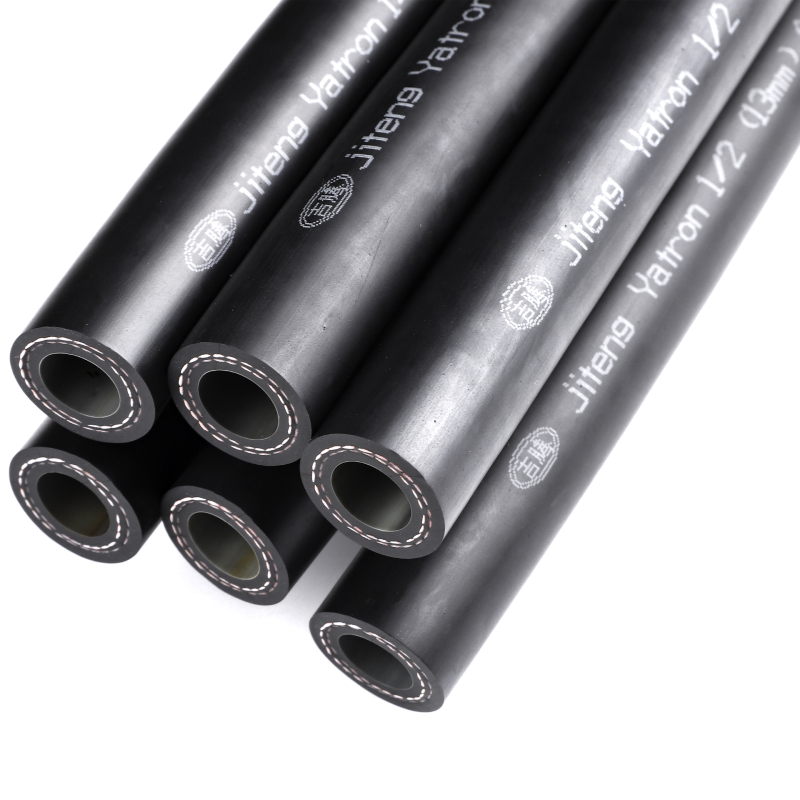flexible fuel pipe
Desemba . 18, 2024 13:13 Back to list
flexible fuel pipe
Understanding Flexible Fuel Pipes Their Importance and Applications
In the realm of automotive engineering and fuel transportation, flexible fuel pipes are crucial components designed to deliver various types of fuel effectively while maintaining safety and performance. These pipes, characterized by their versatility and adaptability, allow vehicles to operate efficiently with different fuel compositions, including traditional gasoline, ethanol blends, and biodiesel. As the automotive industry evolves towards more sustainable energy solutions, the role of flexible fuel pipes has become increasingly significant.
What Are Flexible Fuel Pipes?
Flexible fuel pipes are specialized tubes made from advanced materials that can withstand varying temperatures, pressures, and chemical compositions associated with different fuels. Unlike traditional rigid fuel lines, flexible pipes provide greater adaptability and convenience in design and installation. This flexibility is essential in modern vehicles, where space constraints and complex engine layouts require innovative solutions.
Manufacturers often utilize materials such as fluoropolymers, elastomers, and reinforced composites. These materials not only offer high levels of chemical resistance but also maintain structural integrity under stress, ensuring that the fuel system operates effectively without leaks or failures.
Applications in the Automotive Industry
The primary application of flexible fuel pipes is in the automotive industry, where they are employed in fuel delivery systems. These pipes connect various components, such as fuel tanks, pumps, injectors, and filters, ensuring that fuel reaches the engine efficiently. Their inherent flexibility allows for easier routing within vehicle designs, making them ideal for applications where traditional piping would be too rigid or cumbersome.
flexible fuel pipe

In addition to conventional combustion engine vehicles, flexible fuel pipes are indispensable in flex-fuel vehicles (FFVs) designed to run on multiple fuel types. These vehicles can seamlessly switch between gasoline and ethanol blends, demonstrating one of the key advantages of flexible fuel systems adaptability to alternative fuels. As governments and consumers increasingly seek greener, more sustainable fuel options, the demand for flexible fuel pipes capable of handling various biofuels continues to rise.
Safety and Regulatory Considerations
With the growing use of flexible fuel pipes, safety and compliance with regulatory standards have become paramount. These pipes must meet stringent requirements to ensure they can handle the specific pressures and chemical properties of the fuels they transport. Manufacturers subject flexible fuel pipes to rigorous testing to assess their durability, resistance to fuel degradation, and ability to withstand high-pressure conditions.
Leakage is a critical concern in fuel systems, and flexible fuel pipes are often designed with advanced sealing mechanisms and reinforcements to prevent leaks. Regular inspections and maintenance are also vital to ensure the integrity of these fuel delivery systems, highlighting the importance of proper installation and adherence to industry standards.
The Future of Flexible Fuel Pipes
As the automotive industry shifts towards electrification and hybrid technologies, the role of flexible fuel pipes will continue to evolve. Innovations are likely to focus on enhancing performance, improving materials for better thermal stability, and developing pipes that can accommodate emerging fuel technologies such as hydrogen or synthetic fuels.
In conclusion, flexible fuel pipes play an essential role in modern fuel systems, providing the adaptability needed to meet the demands of diverse fuels and evolving automotive technologies. Their ability to ensure safe, efficient, and reliable fuel delivery makes them indispensable elements within the automotive industry and a key contributor to the transition toward more sustainable energy sources. As advancements continue, these flexible systems will undoubtedly enhance their functionality and reliability, paving the way for the next generation of vehicles powered by cleaner fuels.
Latest news
-
Seven-Layer Winding A/C Hose Type C-HEBEI KEMO AUTO PARTS TECHNOLOGY CO., LTD|Low Permeability&High Durability
NewsAug.29,2025
-
Seven-Layer Type C A/C Hose-HEBEI KEMO AUTO PARTS TECHNOLOGY CO., LTD|Automotive Air Conditioning Solutions
NewsAug.29,2025
-
Durable Automotive Fuel Line: Car, Diesel & E85 Hoses
NewsAug.27,2025
-
Automotive Fuel Line & Hose Solutions | E85 & Diesel Ready
NewsAug.26,2025
-
Reliable Automotive Fuel Line | E85 & Diesel Compatible
NewsAug.25,2025
-
Durable Car Heater Hose | Quality Automotive Preheater Pipes
NewsAug.24,2025
